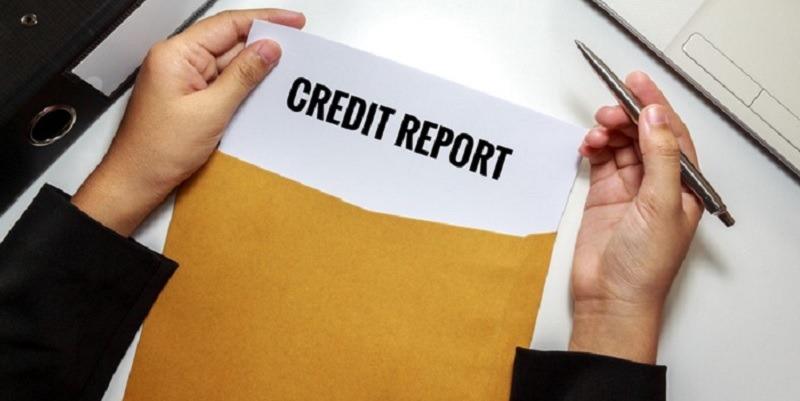
For those of you who are new to the world of personal finance, learn how a hard inquiry or hard pull works. If you don’t know what a hard pull is, it is simply a credit information request includes a your full credit report and deducts points from your credit score.
You might be wondering when you would ever come across a hard pull or hard inquiry. Well, the most common occurrence comes from a credit decision, such as a background check for employment or a rental lease.
Read a more in-depth explanation about hard pull below. We’ll go over what it is and compare it to a soft pull. If you want a more in depth comparison between a soft pull and hard pull, check out our other post!
*See our list of the latest bank bonuses.*
Hard Pull Vs. Soft Pull
First, let’s start off with the hard inquiry, also known as a hard pull. A hard pull occurs when someone applies for credit by filing out a credit card application, applying for a mortgage, applying for an auto loan or any number of other activities that result in a credit decision for the borrower.
Keep in mind that hard pulls can harm your credit score for a short period of time, usually for a few months, and will stay on your credit report for two years.
A perk of hard pull would be that it is an early indicator of identity theft. This is the case because every hard inquiry must be approved before it’s made. If you see a hard pull on your credit report that you didn’t make, be sure you file a dispute with the credit bureau as soon as you see it so that it’s easier to mitigate.
With your full credit history and credit score, entities have the option to choose a credit reporting agency and style that fits their needs the best. However, most will rely on standard credit bureaus such as Experian, Equifax, and Transunion. Others might use alternative bureaus to provide deeper analysis or credit scoring.
The other type of credit inquiry is called a soft pull and they follow a different procedure. It requires much less information than a hard pull. Also, soft pulls are not reported on a your credit report and have no effect on your credit score. Examples of things that have a soft pull on your credit would be free credit score reports, prequalification approvals from lenders and loan information requests from credit marketing services.
Negatives of Hard Inquiries
Hard pulls are treated as indicators for financial institutions because they tend to happen when customers apply for a bunch of new credit cards and loans in quick succession, which signals risk. This decreases your credit score, which shows financial institutions that you are “less reliable”. These inquiries will have a more significant impact on someone who doesn’t have that many accounts and a shorter credit history.
However, if you were to have multiple inquiries for the same type of loan from several financial institutions in a short period don’t have the same negative impact as multiple inquiries for different types of loans. To further protect your credit score, do your research and shop around for a loan with a good interest rate.
Although a hard pull stays on your credit report for two years, the effect it has on your score lessens over time. The impact of a hard pull usually goes away before it gets off your credit report.
How Can I Keep My Score From Dropping?
Now that you know your credit score can drop from financial moves that involve a hard pull, it isn’t the end of the world. There are still a couple of ways to minimize the likelihood of your score dropping such as:
Shop Around Quickly
If you’re trying to get a mortgage, car loan or student loan, try to do so in a two-week period. This method will likely count all those applications as a single inquiry. This happens because most scoring models count all the inquiries of one of those types as one, as long as they take place within a 14- or 45-day period, depending on the model being used.
Monitor Your Credit
Before you make any financial moves, it is a good to check your credit report and scores. Doing this will help you shop for loans and credit that you are more likely to qualify for.
While monitoring your credit, you might come across a hard credit inquiry or hard pull with a name of a company you do no recognize, make sure it is not a promotional credit inquiry. If it is, you were most likely sent an offer for preapproved credit, so you have no reason to be alarmed. However, if it isn’t a promotion credit inquiry, be sure to contact that company on your report to remove the error.
Monitoring is relatively easy and there are quite a few places that you can do it for free, such as your credit card company. Some people tend to avoid checking the hard pull credit inquiries because they think it’s not a big deal, but that is far from the case. This not only teaches you good budgeting but it also makes sure no one is opening accounts using your name.
 |
 |
Bottom Line
Simply put, soft pulls or soft inquiries do not affect your credit score and occur when you simply want some information. An authorized user, such as an employer, can request a credit check or you can request it through your financial institution for no affect on your credit.
Just keep in mind that whenever you decide to make a big financial move, such as applying for a credit card or a loan, read the terms and conditions to make sure there isn’t hard pull. For more information on Soft Pull and Hard Pull, check out our listings!


